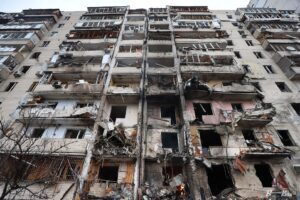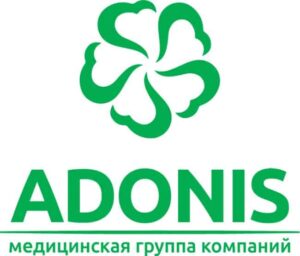
As of April 1, 2022, the KSE Institute estimated the damage to Ukraine’s infrastructure from the war in the country at $68.2 billion, or almost UAH 2 trillion, while over the past week the estimate of losses increased by $5 billion, according to a press release of the analytical division of the Kyiv School of Economics (KSE), KSE Institute.
“Over the week, the damage caused to Ukraine’s infrastructure during the war waged by Russia has increased by more than $5 billion. As of April 1, the total amount of damages is $68.2 billion,” the KSE said, referring to the Russia Will Pay project.
“Since the beginning of Russia’s military aggression on February 24, at least 533 institutions of secondary and higher education, 300 kindergartens, 196 healthcare institutions, 129 factories/warehouses are destroyed or damaged. The Ministry for Communities and Territories Development estimates that 6,800 residential buildings were damaged or destroyed. According to the KSE Institute, the total amount of damaged/destroyed residential real estate is about 26 million square meters,” the report says.
“In addition, 54 administration buildings, 260 bridges and bridge crossings, 10 military airfields, 8 airports, 2 ports were damaged by the war. During full-scale Russia’s invasion, the occupiers caused damage to Ukraine, destroying or damaging 64 religious buildings and 51 cultural objects,” it reads.
As reported, the Office of the President, the Ministry of Economy and the analytical center at the Kyiv School of Economics, KSE Institute, launched the Russia Will Pay project, a portal to collect information about the destroyed objects in the country as a result of Russia’s full-scale war against Ukraine.
On the special website https://damaged.in.ua/ you can provide information about the damage caused as a result of the war against Ukraine. In the future, this information will be used by the Ukrainian government as evidence in international courts for compensation by Russia for the damage caused.

JSC DTEK Zakhidenergo continues to buy out all the proposed interstate section capacity for exporting electricity to Poland at daily auctions for April, according to data on the website of NPC Ukrenergo.
According to the published results of the auction for April 2-6, the company bought 190 MW of distributed power for each hour of the day.
According to the data on the ENTSO-E website, from April 1 to April 5, exports are the same – in a flat schedule of 190 MWh all day.
As of April 6, data are not yet available.
As reported, on March 28, Ukrenergo resumed daily auctions for the purchase of interstate cross sections for the export of electricity to Poland. All import-export auctions were suspended on February 24 due to the entry of the Ukrainian power system into an isolated mode as part of synchronization with ENTSO-E.
The power systems of Ukraine and Europe switched to synchronous operation on March 16.

Drivers of vehicles registered in Ukraine who are abroad can renew the Green Card policy on the websites of insurers who are full members of the Motor (Transport) Insurance Bureau of Ukraine, according to the website of the bureau.
It is clarified that these are the sites of NASK Oranta – https://oranta.ua, UASK ASKA – https://aska.ua, IC INGO – https://ingo.ua, USK Knyazha Vienna Insurance Group” – https://kniazha.ua, “UTSK” – https://utico.ua, IC “PZU Ukraine” – https://pzu.com.ua, “SG “TAS” – https:/ /sgtas.ua, IC “USG” – https://ukringroup.ua, IC “Persha” – https://persha.ua, IC “Guardian” – https://grdn.com.ua.
Ratio of fertility and mortality by region in 2021

SSC of Ukraine

Medical group of companies Adonis (Kyiv) opened an appointment in Uzhgorod on the basis of the partner clinic “Plusmed”. As the Interfax-Ukraine agency was told in the medical group, we are talking about accepting patients in the direction of reproductive technologies. Patients who are served under pregnancy management contracts can continue to be observed by ADONIS doctors, both in clinics in Kyiv and Obukhov, as well as in the Plusmed clinic in Uzhgorod. In addition, in Uzhgorod, patients will be able to receive services for the treatment of infertility and pregnancy management, as well as the treatment of gynecological diseases and prenatal diagnosis, including ultrasound at all stages, including screening, and invasive procedures (amniocentesis, chorionic villus biopsy, placental villus biopsy) . In addition, in Uzhgorod “Adonis” will provide ultrasound examination and laboratory diagnostics services. “The embryos and biomaterial of ADONIS patients are safe in Uzhgorod, on the territory of the Plusmed medical center,” the medical group said. Adonis is a network of private medical centers for adults and children. Adonis Private Clinic was founded over 20 years ago. Its network includes 12 branches in Kyiv and the region, including two own maternity hospitals and a stem cell laboratory. In the branches of the clinic, doctors receive patients in 66 medical areas.